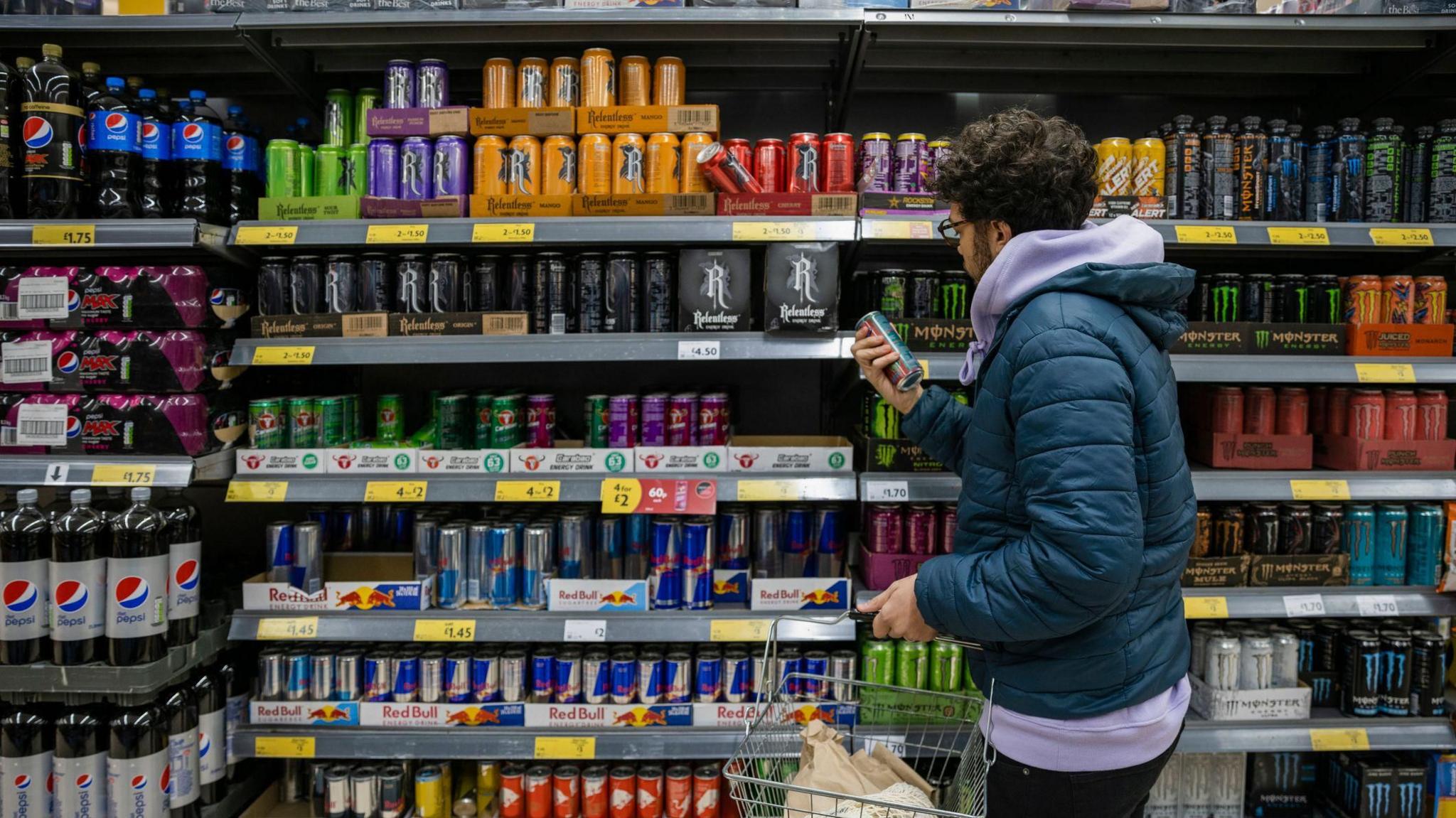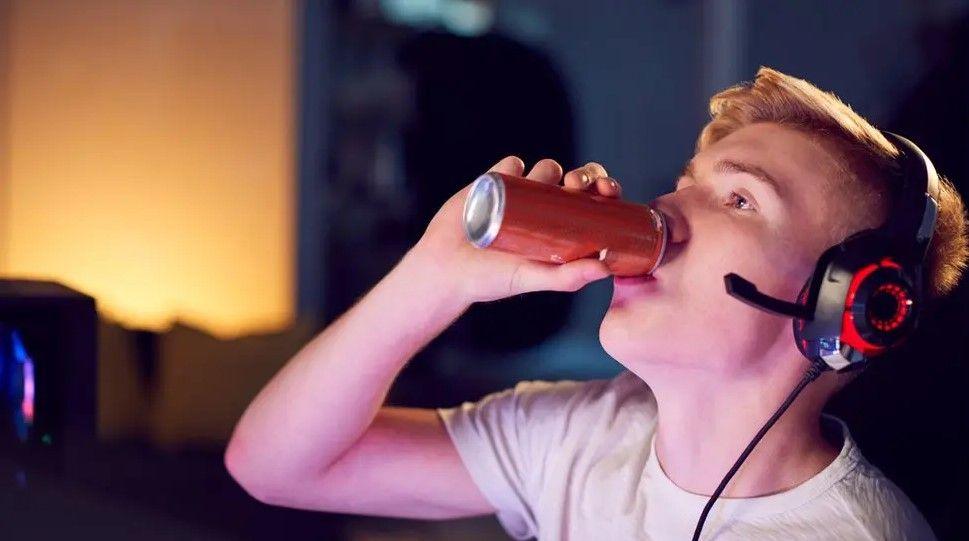Plan to ban energy drinks for under-16s

- Published
The government is planning a new law in England to stop anyone under the age of 16 buying energy drinks such as Red Bull, Monster and Prime Energy from shops, restaurants, cafes, vending machines and online.
These drinks are often high in caffeine and expers say young people have smaller bodies and their brains are still developing, which can make them more sensitive to caffeine.
Some shops and supermarkets already don't sell them to children but according to research up to a third of UK children are thought to drink them every week.
There have been plans before to ban the sale of these drinks to children in England by previous governments, but now the idea is being brought back.
Northern Ireland, Scotland and Wales are also considering a ban.
- Published8 February 2022
- Published17 July 2023
- Published30 August 2018
What's the problem with energy drinks for children?

Energy drinks are designed to give you short bursts of energy. They have high levels of sugar and a 'stimulant' called caffeine - which means it effects your body to make you feel more alert.
It can be found in coffee, tea and in food like chocolate.
Having too much caffeine can cause headaches and sleep problems and the government says a ban could help stop issues such as disrupted sleep, increased anxiety and lack of concentration, as well as poorer school results.
Health and Social Care Secretary Wes Streeting said he was acting on the concerns of parents and teachers and tackling the issue "head on", to protect young people's health.
Lower-caffeine soft drinks, such Diet Coke, are not affected, and neither are tea and coffee.
Under current rules, any drink, other than tea or coffee, with over 150mg of caffeine per litre requires a warning label saying: "High caffeine content. Not recommended for children or pregnant or breast-feeding women."
But some drinks contain almost three times this amount.
And Prof Amelia Lake from Teesside University, who has studied the drinks' impact on young people's lives, said they had "no place" in the diets of children.
"We know these drinks are part of youth culture and associated with sports, gaming, music and more, but there is a lack of clear signalling about their health consequences."
The major supermarkets have imposed their own voluntary ban on selling high caffeine drinks to the under sixteens but this isn't the case in many smaller stores.
Gavin Partington from the British Soft Drinks Association said his members already have a vountary code for their members not to "promote the sale of energy drinks to under 16s and label all high-caffeine beverages as 'not recommended for children'."
For the next 12 weeks evidence will be gathered from health and education experts as well as the public, shops and drink makers.
